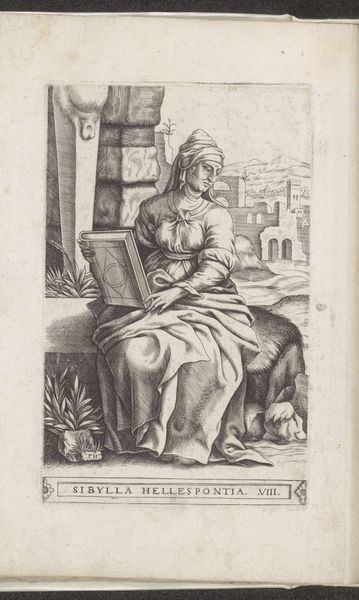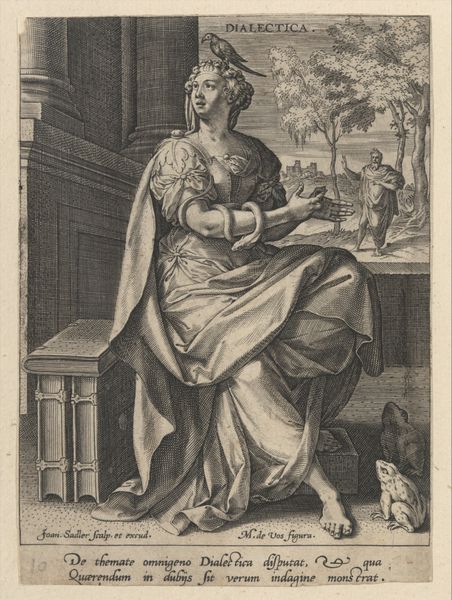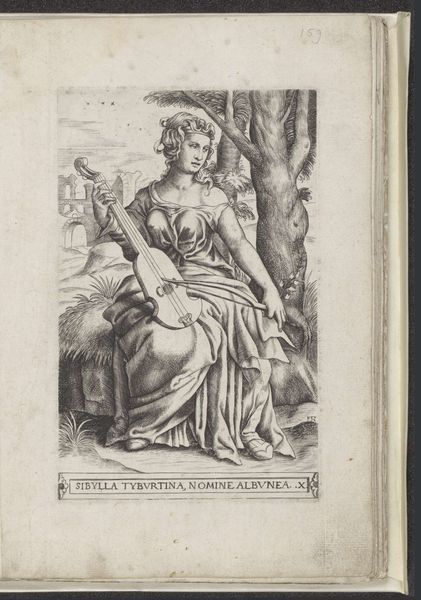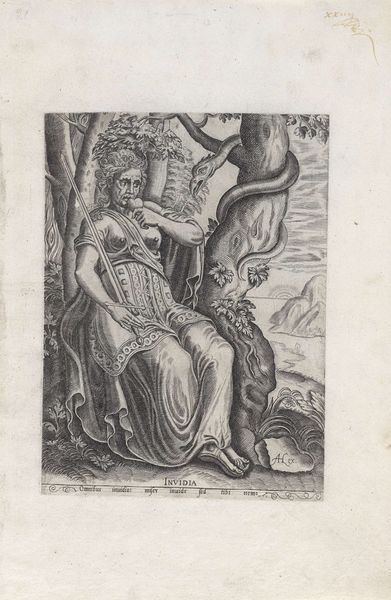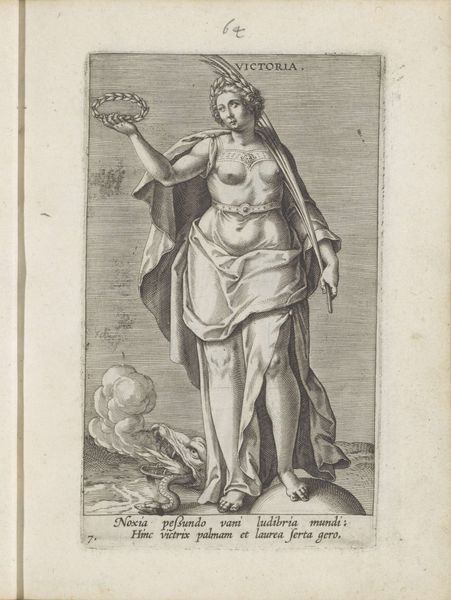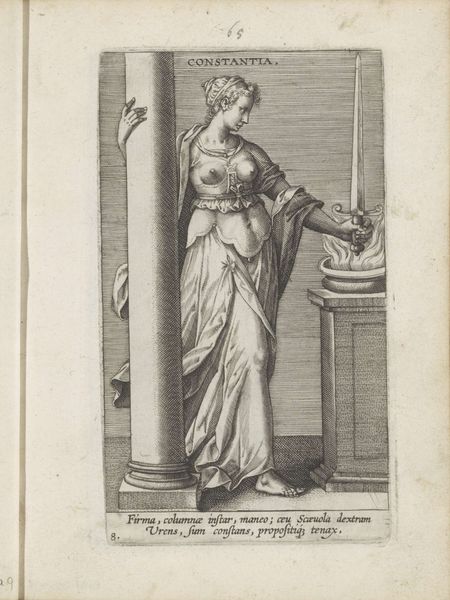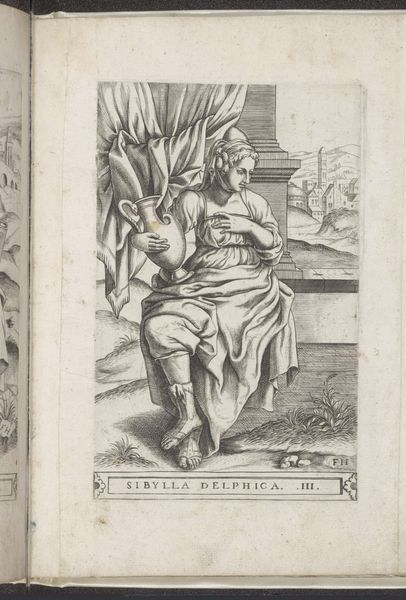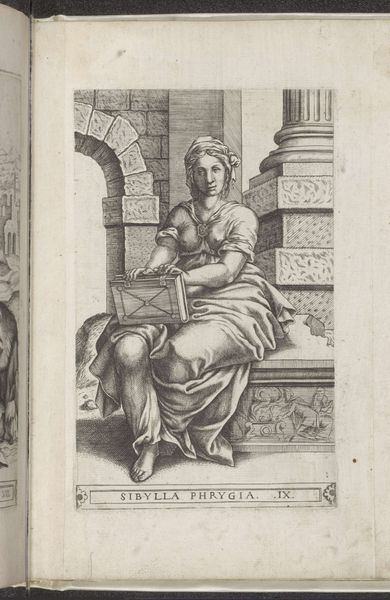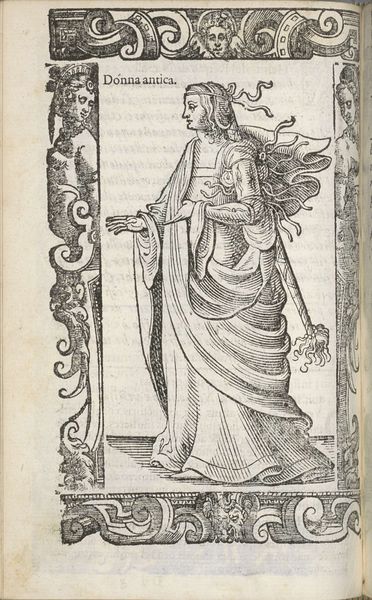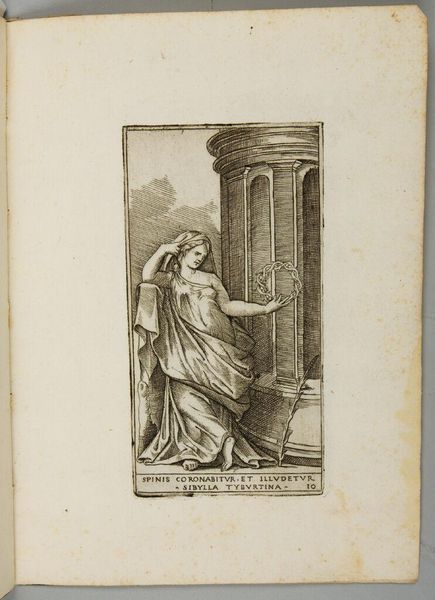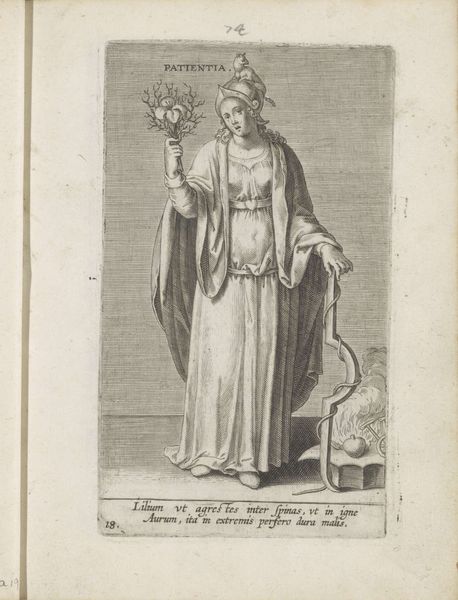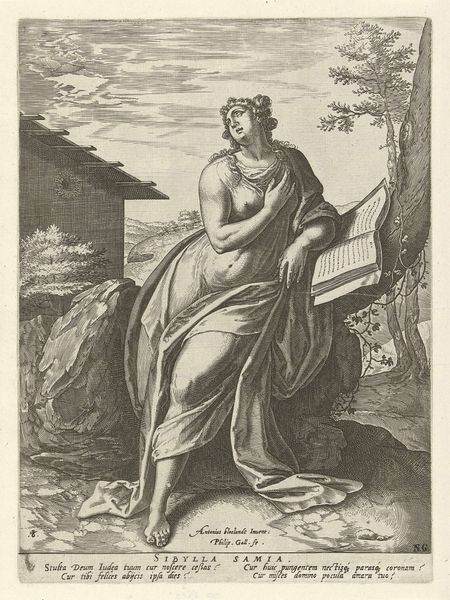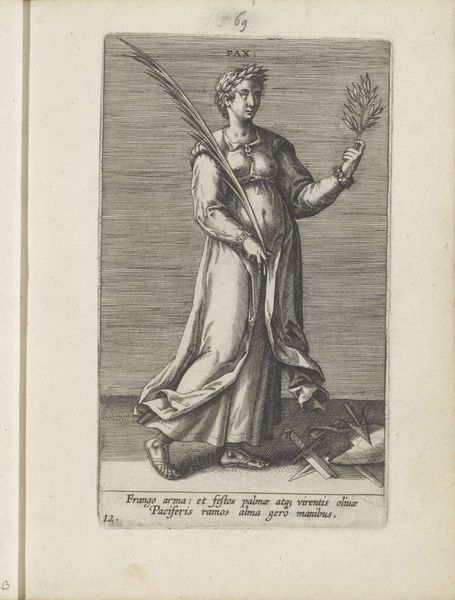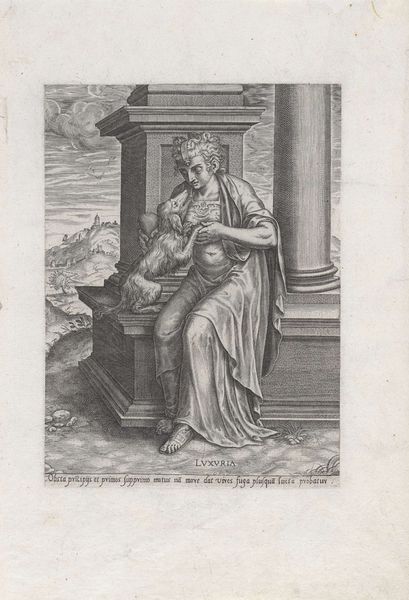
print, engraving
# print
#
old engraving style
#
landscape
#
figuration
#
italian-renaissance
#
engraving
Dimensions: height 200 mm, width 125 mm
Copyright: Rijks Museum: Open Domain
This print of the Sibyl of Cumae was made in the mid-16th century by Frans Huys, using an engraving technique. Lines are incised into a metal plate, ink is applied, and then the surface is wiped clean, leaving ink only in the recessed lines. This painstaking process results in a very fine image when printed onto paper. The image presents a figure from classical mythology. But what is equally interesting is how this figure has been produced. Engraving like this was part of a burgeoning print culture, which enabled the relatively cheap reproduction of images. It involved not only Huys's artistic skill, but also the labour of those preparing the plates and operating the printing press. The effect was to democratize visual culture – enabling a far wider audience to participate. So, when we look at this image, let’s not only think about the Sibyl, but also about the means through which her likeness came into being, and how that relates to broader issues of labor, production, and access to culture.
Comments
No comments
Be the first to comment and join the conversation on the ultimate creative platform.
